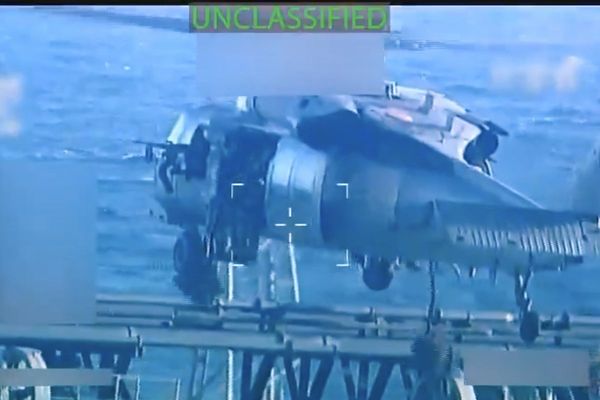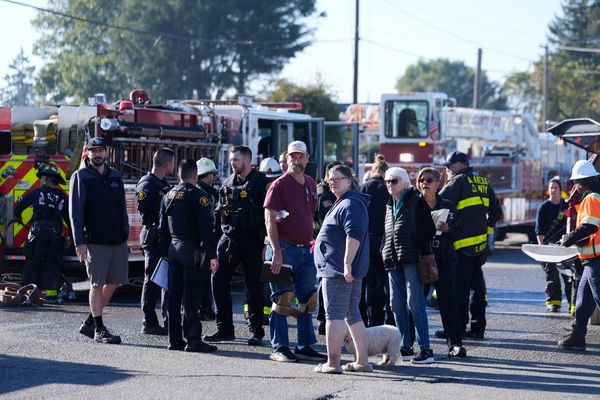It was a tense day in Darwin in 1942 when Brian Winspear noticed a strange object glistening above the palm trees.
"You could see the sun glinting off the bombs," he said.
At the time, as WWII had escalated with the rise of Nazi Germany, Japan was attacking nearly all of its Asian neighbours.
It wasn't until February 19, 1942, that Australia became its newest target.
Mr Winspear — then a 21-year-old member of the Royal Australian Air Force (RAAF) — said he raced to the bottom of a trench and watched in horror as Japanese aircraft dropped bombs around him.
"They were so close that I could see the pilots' faces in their cockpits," he said, describing the onslaught that rained down from above.
Mr Winspear, now 101 years old, is one of the city's last remaining survivors of World War II.
Today, he will join veterans and the Darwin public for the 80th commemoration of the bombing of Darwin.
Japan's first air raid, on February 19, remains the largest single attack ever mounted by a foreign power on Australian soil.
Norman Cramp — the director of the Darwin Military Museum — said Imperial Japan was only just getting started.
"Around 230 to 250 people were killed on that first day," Dr Cramp said.
"And, over the nearly two years of bombings, around 1,700 people lost their lives."
Mr Winspear remembers that time clearly.
"You only got a one chance in four of walking away."
Born in Burnie, Tasmania, in 1920, a young Brian joined the RAAF as a navigator and Hudson wireless air gunner in 1939.
When Japan began its 20-month attack on Darwin in 1942, Mr Winspear said the city was "completely defenceless".
"You couldn't do anything about the fires, and the bullets from the machine guns were exploding and buzzing everywhere," he said.
Mr Winspear said the attacks were so damaging and fast that there was no time to properly farewell the dead.
"If someone didn't come back, there was no mourning, no funerals, no anything," he said.
"At one stage, I had to watch 12 air crew blokes burn to death after their plane took off tail-heavy … and dived straight into the ground."
Reflecting on his own, many near-death experiences, Mr Winspear said the bombing of Darwin had made him a "great believer in fate".
"Several times, I was supposed to be doing something and, at the last minute, they changed it," he said.
"The person that took my place — in two or three cases — he was dead, with a lot of others."
As the number of WWII survivors dwindles, Dr Cramp said it was imperative that young people were taught the truth about what happened in Darwin.
He said the stakes were too high not to do so.
"The younger generations, and the current generations and the generations in the future, are losing their memory of this," Dr Cramp said.
"The danger with history is, if you forget it and ignore it, you increase the chances of it repeating itself."







